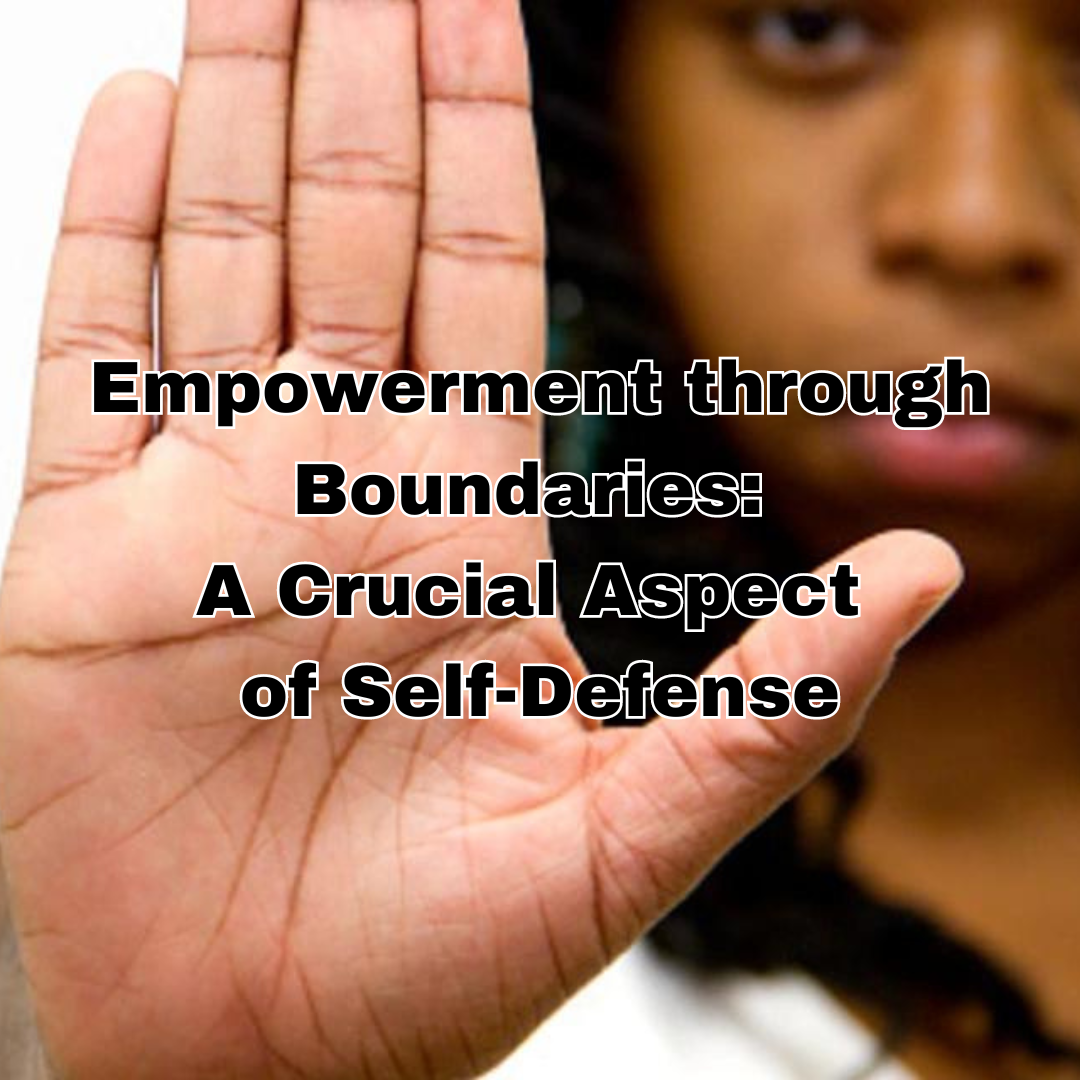In a rapidly changing world, personal safety and self-defense are more important now than ever. Alongside physical techniques and awareness, setting and maintaining boundaries is often overlooked but greatly contributes to personal safety and empowerment.
The Power of Setting Boundaries
Setting boundaries is not just about physical space; it extends to emotional, psychological, and social realms. Establishing and maintaining boundaries is a fundamental aspect of self-respect and communicates to others how we expect to be treated. In the context of self-defense, it becomes a powerful tool to deter potential threats and create a sense of control over one's environment.
Three Tips to Maintain Boundaries for Self-Defense:
1. Clearly Define Your Limits:
The first step in establishing effective boundaries is to clearly define what is acceptable and what is not. This applies to physical contact, personal space, and verbal communication. Reflect on your own comfort levels and determine the boundaries that make you feel safe and secure. Communicate these boundaries assertively and consistently. Whether it's a firm "no" to unwanted physical contact or setting limits on personal information shared, being clear about your boundaries is the foundation of self-defense.
2. Trust Your Intuition:
Intuition is a powerful tool when it comes to personal safety. If a situation or person feels uncomfortable, trust your instincts and act accordingly. This might involve physically moving away from a person or situation, avoiding certain places or situations altogether, or even seeking help if necessary. Your intuition is a valuable ally in self-defense; don't ignore it. When your gut tells you something is wrong, listen and take action to maintain your personal boundaries.
3. Practice Self-Advocacy:
Self-advocacy is the active process of asserting yourself, your needs, and your boundaries. In the context of self-defense, this means speaking up when you feel uncomfortable or threatened. Practice assertive communication to clearly convey your boundaries and expectations. This could involve saying "no" firmly and confidently, expressing discomfort with a specific behavior, or setting limits on the information you share. By actively advocating for yourself, you send a clear message that your boundaries are non-negotiable, fostering an environment of respect and deterring potential threats.
Conclusion:
In the realm of self-defense, setting and maintaining boundaries is a proactive and empowering strategy. It goes beyond physical techniques, encompassing a holistic approach to personal safety. By clearly defining limits, trusting your intuition, and practicing self-advocacy, you equip yourself with valuable tools to navigate the world confidently. Empowerment through boundaries not only contributes to personal safety but also fosters a sense of self-respect and control over one's environment. As we strive for a safer and more secure world, understanding the importance of boundaries is a crucial step toward achieving that goal.

